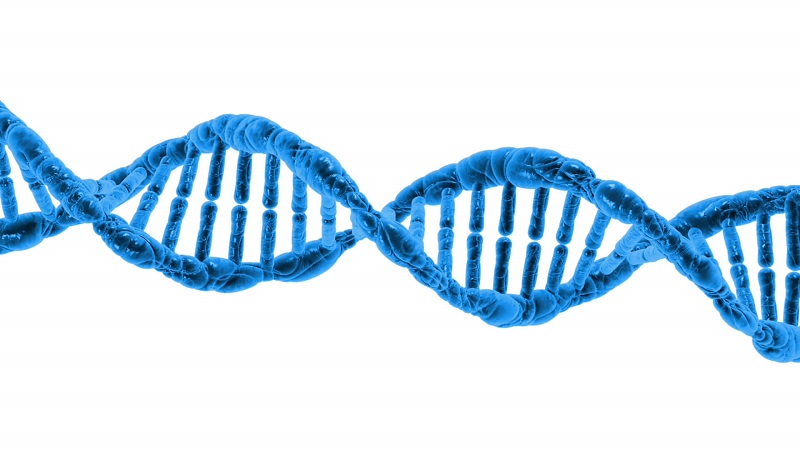Hormones & Health (9)
How to Avoid Gaining Weight During the Holidays
- Published in Hormones & Health
- Written by Christine

With the holidays quickly approaching, weight gain is a common concern around this time of year for many people. The seasonal holiday traditions tend to encourage overeating or overindulging of calorie-rich foods. In fact, adults will gain an average of 1 pound during the months of mid-November to mid-January. Although this may not seem like much, most people won’t lose the extra pounds they’ve gained during the cozy season. With that said, the holidays are one of the biggest reasons you gain weight during the year. Because the holidays make it too tempting to indulge a little extra, here are some tips you can remind yourself to try to avoid weight gain during Thanksgiving and Christmas time.
4 Most Effective Methods to Lose Body Fat
- Published in Hormones & Health
- Written by Christine

You know the season - sun’s out, buns out! As the days are heating up, the layers of clothing seem to be thinning too. If your weight has been stopping you from living your best life this summer, the time is now to take control and commit to a healthier life. We know slimming down is not an easy process, especially with our busy schedules, cravings, and temptations. Besides basic diet and exercise, burning off the excess fat may be influenced by other factors. There are many steps you can take proactively to help shed unwanted weight quickly and easily. Keep reading to find out how you can speed up your weight loss below!
Article Tags
How Menopause Can Affect Your Sleep
- Published in Hormones & Health
- Written by Christine

Menopause is a cycle middle-aged women go through that has some major hormonal, psychological, and physical changes as their ovaries gradually decrease in estrogen and progesterone production. As we all know very well, getting adequate sleep is very vital to a healthy, functioning life - especially when your body is going through a big transition such as menopause. Many female patients in their late 30s-40s with symptoms of insomnia come in for check-ups and are actually experiencing the beginning stages leading up to menopause, called perimenopause. Hormonal and/or lifestyle changes can impact your sleep pattern. Keep reading to find out more about how perimenopause and menopause can affect your sleep, and some solutions to consider trying!
Article Tags
5 Fun Facts about Your Blood Type
- Published in Hormones & Health
- Written by Christine

Did you know that your blood type can affect your overall health and even possibly your personality? There are 4 known blood types that exists in the human population, with subgroups for each type. There are some interesting facts about your blood type. Keep reading to learn some interesting fun facts about blood types you never knew!
Article Tags
5 Things You Should Know About Peptide Therapy
- Published in Hormones & Health
- Written by Christine

What is a peptide and what is peptide therapy?
Medical offices often market peptide therapy as a treatment for anti-aging to help boost hormone levels, one of the many benefits of peptides. So, what are peptides and what is peptide therapy? Peptides are small chains of amino acids and are used to communicate and send signals to turn on and off different functions in our bodies. Peptide therapy is used to help improve our body functions. It would be a shame not to explore the possibilities of other great benefits that peptides may be able to offer. As further research is conducted on peptides, we will learn more information regarding peptide therapy. For now, here are 5 important facts to understand peptide therapy a little more:
Article Tags
How to Choose the Best Anti-Wrinkle Cream
- Published in Hormones & Health
- Written by Christine
What Is Menopause?
- Published in Hormones & Health
- Written by Christine
Things You Should Know About Menopause

Oh, the joy of being a woman...Menstrual cycles (commonly known as periods) impact women’s lives on a monthly basis starting at puberty for several decades, with the exception of pregnancies when periods cease for a period of 9 months. However, these menstrual cycles do not last forever. Periods will eventually come to a halt permanently, also known as menopause. Understanding menopause is important for men as well as women, since it will affect how men communicate with the women in their lives such as a spouse, mother, sister, female friends, or other relatives during the menopause stage that may last up to a decade. Menopause is popularly correlated to hot flashes and the ceasing of womens’ periods but there is a lot more to it than that. Here are some things you need to know regarding the menopause stages women are going through or will eventually go through and treatments recommended by experts.
Article Tags
Multiple Hormonal Deficiencies in Anabolic Hormones in Frail Older Women
- Published in Hormones & Health
- Written by Monica

Reduced levels of anabolic hormones can contribute to aging and frailty. Most studies that have investigated this focused on the relationship between individual hormones and specific age-associated diseases. An interesting study in older women aged 70-79 years sought to examine the associations of individual anabolic hormonal deficiencies of free testosterone, IGF-1 and DHEA, and to assess their combined effects as well.[1]
Article Tags
Relationship between Low Levels of Anabolic Hormones and Mortality in Older Men
- Published in Hormones & Health
- Written by Monica

The anabolic hormones testosterone, IGF-1 and DHEA (a pre-hormone) are receiving more and more attention by health professionals because the anabolic-catabolic imbalance that favors catabolism is a key factor in accelerated physical deterioration aging.[1, 2] Anabolic impairment can speed up the age-related decline in muscle mass and physical performance, increase in fat mass, development of insulin resistance, cardiovascular risk factors, metabolic syndrome and diabetes, conditions that in turn affect mortality.[3-18]
Interestingly, low levels of multiple anabolic hormones, rather than a single one, has a stronger association with age related muscle loss and the frailty syndrome. [19, 20] In men with chronic heart failure, deficiency of more than one anabolic hormone identifies patients with higher mortality rates.[21]
An interesting study sought to investigate the relationship between parallel deficiency of several anabolic hormones and mortality in a general population of older men, regardless of coexisting disease:[22]




